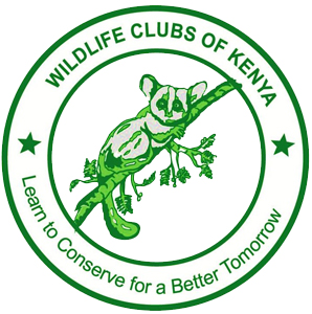Guardians of the Blue: Wildlife Clubs of Kenya’s Enduring Impact on Aquatic Ecosystems
- Margaret Otieno
- Oct 7, 2025
- 3 min read
The Wildlife Clubs of Kenya (WCK) have been a foundational force in environmental conservation for over half a century. Established in 1968 by Kenyan students, WCK pioneered youth-led conservation education across Africa and has earned international recognition, including election to the UNEP Global 500 Honour Roll in 1986. With a mission to “Empower Youth and Communities to Proactively Engage in Wildlife and Environmental Conservation,” WCK has consistently emphasized the crucial role of young people in safeguarding Kenya’s diverse aquatic ecosystems, including rivers, wetlands, and marine environments.

At its core, WCK’s work aligns with global sustainability goals, particularly Sustainable Development Goal 14 (Life Below Water) and SDG 15 (Life on Land). While the organization’s public platforms rarely highlight large-scale direct aquatic restoration projects, its broad programs—covering conservation education, sustainable waste management, ecological programs, and climate change mitigation—profoundly support aquatic ecosystem health. By fostering environmental literacy and community engagement, WCK builds the human capacity essential for long-term water resource protection.

A key strength lies in WCK’s extensive conservation education outreach, which has reached over one million young Kenyans. Through school wildlife clubs, teacher training, and publications like Komba Magazine—featuring dedicated guides such as “Earth’s Freshwater” and “One Ocean”—WCK educates youth about the ecological significance of freshwater and marine environments. Beyond classrooms, practical activities like river and environmental clean-ups, tree planting to reduce soil erosion, and field trips including “Komba Kids Safaris” translate learning into tangible environmental action. Notably, WCK’s headquarters near Nairobi’s Mokoyeti River provides an accessible site for experiential learning connected to aquatic ecosystems.

This educational groundwork feeds into WCK’s policy advocacy efforts, where “Advocacy For Nature” remains a core value. WCK collaborates with government agencies, NGOs, and conservancies to promote sustainable water governance and policy integration of environmental, social, and governance (ESG) principles. Their influence extends indirectly through an impressive network of alumni—over 90% of Kenya Wildlife Service (KWS) employees report their conservation career paths began with WCK membership. Since KWS plays a national role in managing marine parks such as Kisite Mpunguti Marine Park and protecting freshwater catchments, WCK’s values and training resonate deeply within Kenya’s environmental governance framework.
Recent focused initiatives highlight this impact. A four-year conservation education project launched in 2025 in partnership with the African Wildlife Foundation (AWF) targets Tsavo’s rivers and wetlands, engaging 83,000 youth across 137 schools to enhance biodiversity conservation and human–wildlife coexistence. Community-led actions like clean-ups in the Nairobi River basin and tree planting illustrate WCK’s hands-on approach to improving water quality and ecosystem resilience. Through such programs, WCK contributes to Kenya’s broader efforts in wetland restoration and watershed management, complementing large-scale projects like the Kenya Watershed and Sustainable Landscape Investment Project (KEWASIP).
Visual storytelling plays a vital role in communicating WCK’s work. Dynamic photographs of youth participating in riverbank clean-ups, tree planting near water sources, and exploring aquatic habitats underscore the organization’s commitment to nurturing environmental champions. Infographics simplify complex ecological concepts, while leadership quotes from CEO Dr. Margaret Otieno stress the necessity of early education: “It is very important that we start planting the seed in younger minds through education.” This vision for nurturing informed, proactive citizens is central to sustaining Kenya’s aquatic ecosystems amid growing climate and developmental pressures.
Wildlife Clubs of Kenya’s enduring legacy lies not just in isolated projects but in cultivating a knowledgeable, engaged generation prepared to lead conservation efforts. Their work creates powerful, lasting ripples that strengthen Kenya’s rivers, wetlands, and marine environments, ensuring vibrant blue horizons for the nation and beyond—guardians of the blue for generations to come.



Comments